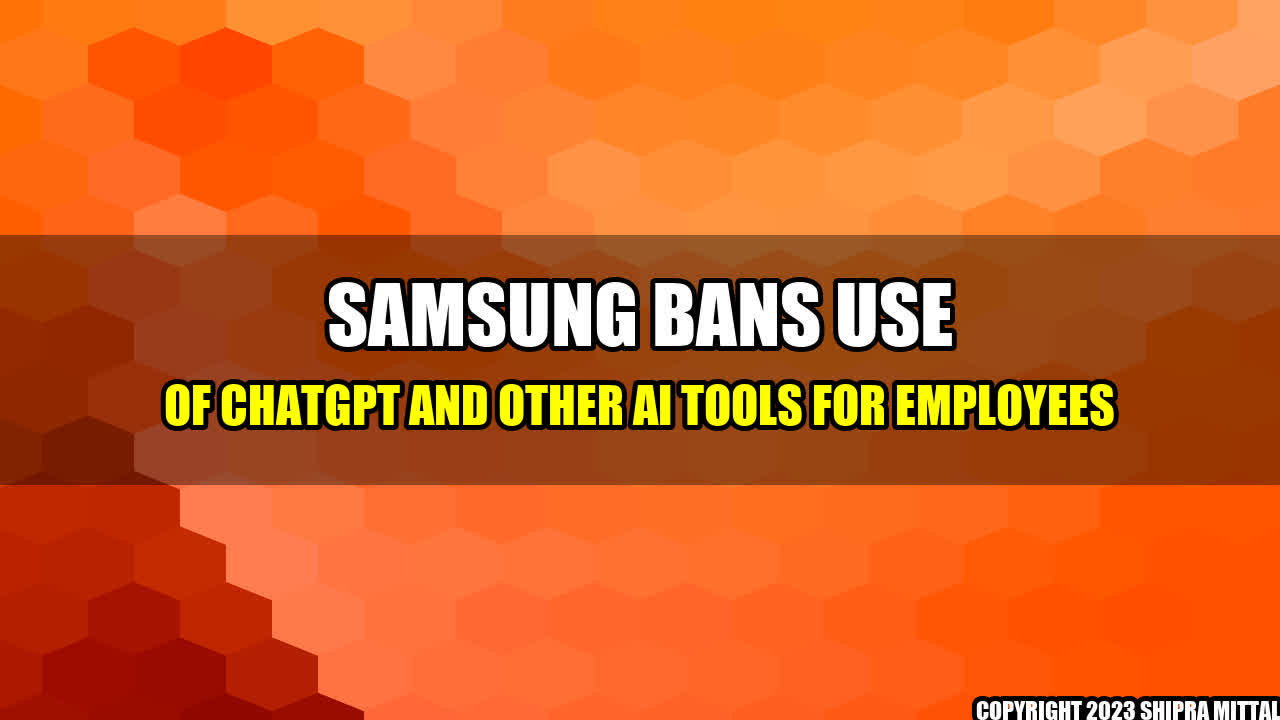Imagine a Samsung employee using an AI tool to complete a task in record time, only to receive a warning from their manager for violating company policy. This scenario is now a reality at Samsung, as the company recently announced a ban on the use of ChatGPT and other AI tools for employees.
According to Samsung, the ban is in response to concerns over data privacy and compliance. The company stated that the use of such tools could put sensitive information at risk and violate regulatory requirements.
However, some employees are frustrated by the ban, arguing that AI tools help them work more efficiently and effectively. They point to other companies, such as Google, which have embraced AI technology in the workplace.
So, why has Samsung decided to take such a cautious approach? And what does this mean for the future of AI in the workplace?
The Main Companies and Their Approaches
Let's take a look at a few examples of how other companies are approaching AI in the workplace:
- Google: Google has been a pioneer in the use of AI tools for employees. For example, the company has developed an AI-powered scheduling assistant that helps employees schedule meetings in seconds.
- Microsoft: Microsoft has also been active in the AI space. The company's Workplace Analytics tool uses AI to help managers understand how employees are spending their time and identify opportunities for improvement.
- IBM: IBM has taken a different approach to AI in the workplace. The company's Watson Assistant platform is designed to help employees access information and resources more easily.
Conclusion
While it's understandable that Samsung is concerned about data privacy and compliance, banning the use of AI tools in the workplace may not be the most effective solution. Other companies have found ways to embrace AI while still maintaining security and compliance. It will be interesting to see how Samsung's decision impacts its employees and the company as a whole.
In summary, Samsung's recent ban on the use of AI tools in the workplace is a cautionary tale for other companies looking to embrace this technology. While concerns over data privacy and compliance are valid, there are ways to mitigate these risks without completely prohibiting the use of AI.

Akash Mittal Tech Article
Share on Twitter Share on LinkedIn